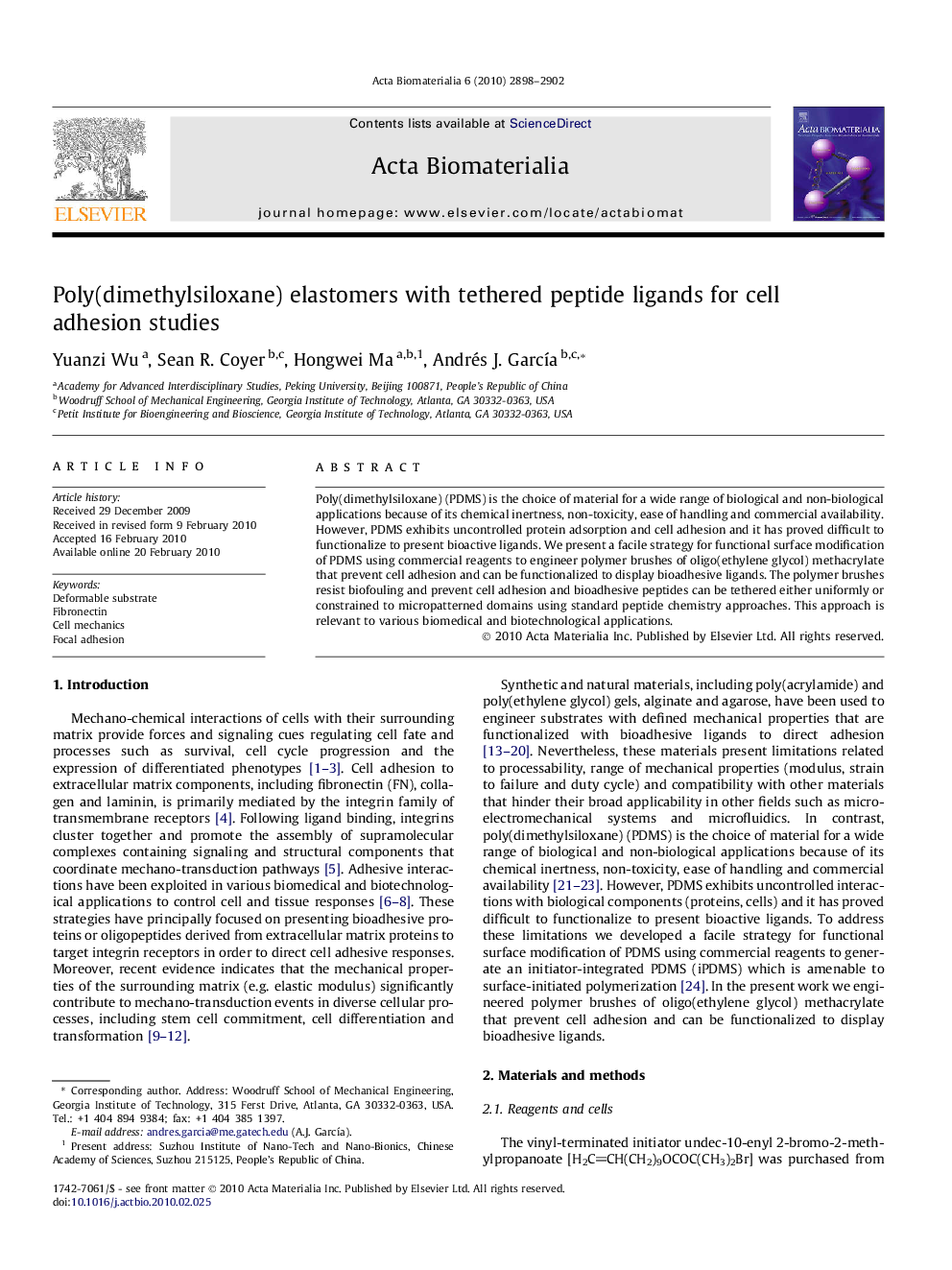| Article ID | Journal | Published Year | Pages | File Type |
|---|---|---|---|---|
| 2250 | Acta Biomaterialia | 2010 | 5 Pages |
Poly(dimethylsiloxane) (PDMS) is the choice of material for a wide range of biological and non-biological applications because of its chemical inertness, non-toxicity, ease of handling and commercial availability. However, PDMS exhibits uncontrolled protein adsorption and cell adhesion and it has proved difficult to functionalize to present bioactive ligands. We present a facile strategy for functional surface modification of PDMS using commercial reagents to engineer polymer brushes of oligo(ethylene glycol) methacrylate that prevent cell adhesion and can be functionalized to display bioadhesive ligands. The polymer brushes resist biofouling and prevent cell adhesion and bioadhesive peptides can be tethered either uniformly or constrained to micropatterned domains using standard peptide chemistry approaches. This approach is relevant to various biomedical and biotechnological applications.
